2019 Annual Conference: Neuroscience and Brain Health – Program Speakers
TAMEST is pleased to have such a diverse group of program speakers at this year’s annual conference. The program speaker lineup includes expertise from academia and industry, and sessions will cover a wide range of topics such as neurodegeneration, addiction and the opioid crisis, neurological disease prevention, technological advances in mapping the brain, and neuroscience research priorities and challenges that lie ahead.
Program Speakers
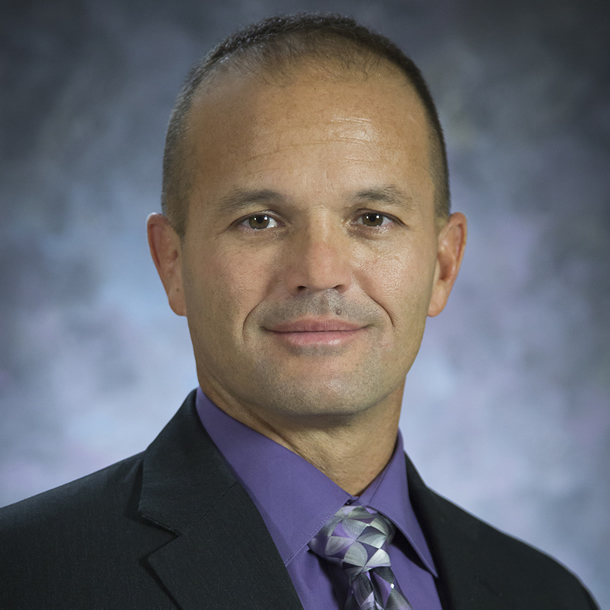
Terrence F. Alger II, Ph.D.
Dr. Alger is the director of the Automotive Propulsion Systems Department at SwRI and a fellow of the Society of Automotive Engineers. His work focuses on improving powertrain efficiency and performance thorough advanced engine and driveline technologies. He is the past manager of the HEDGE (High Efficiency Dilute Gasoline Engine) program and one of the inventors of the DCO (Dual Coil Offset) Ignition system and the D-EGR engine, both of which have been awarded R&D 100 Awards in 2011 and 2014, respectively. In addition to developing more efficient gasoline engines, Dr. Alger’s current research interests include ignition systems, abnormal combustion in gasoline engines, boosting systems and fluids (fuels and lubricants) for advanced combustion concepts.
Dr. Alger graduated from the U.S. Military Academy as a Distinguished Cadet in 1992 and was commissioned as a 2nd Lieutenant in the U.S. Army Corps of Engineers. During his years in the Army, Dr. Alger served as a platoon leader and task force engineer for the 3/325th Infantry (Airborne Battalion Combat Team) and participated in operations in Bosnia and Africa. In 1996, he was assigned to the U.S. Army Corps of Engineers Southwest Division as a project officer. After resigning from the Army, Dr. Alger began his graduate studies at The University of Texas at Austin. Both his master’s thesis and Doctoral dissertation focused on optical investigations in a GDI engine. After completing his degree, Dr. Alger worked at Ford Motor Company’s Research and Advanced Engineering Division. He has been a member of SwRI’s staff since 2003.
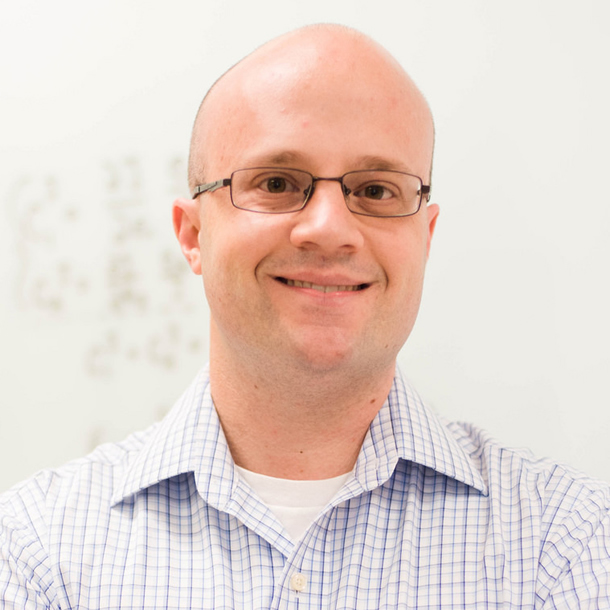
Hal S. Alper, Ph.D.
Dr. Alper earned his Ph.D. from the Massachusetts Institute of Technology in 2006 and was a postdoctoral research associate at the Whitehead Institute for Biomedical Research from 2006–2008, and at Shire Human Genetic Therapies from 2007–2008. He is currently the principal investigator of the Laboratory for Cellular and Metabolic Engineering where his lab focuses on metabolic and cellular engineering in the context of biofuel, biochemical and biopharmaceutical production. His research applies and extends the approaches of related fields such as synthetic biology, systems biology and protein engineering. Dr. Alper has published over 100 articles and eight book chapters. Dr. Alper is the recipient of awards including the Camille and Henry Dreyfus New Faculty Award (2008), Texas Exes Teaching Award (2009), Office of Naval Research Young Investigator Award (2011), UT Regents’ Outstanding Teaching Award (2012), Biotechnology and Bioengineering Daniel I.C. Wang Award (2013), Camille Dreyfus Teacher-Scholar Award (2014), SIMB Young Investigator Award (2015), ACS BIOT Young Investigator Award (2016), UT-Austin Emerging Inventor of the Year Award (2016) and AIChE Allan P. Colburn Award (2018).

Benjamin Russell Arenkiel, Ph.D.
Dr. Benjamin Arenkiel received his bachelor’s degree in microbiology and chemistry with honors from St. Cloud State University, and his doctoral degree in genetics from the University of Utah, where he trained under Nobel Laureate Dr. Mario Capecchi. From 2005–2010, he was a post-doctoral fellow with Drs. Lawrence Katz and Michael Ehlers in the Howard Hughes Medical Institute at Duke University. In December of 2010, Dr. Arenkiel joined the faculty of Baylor College of Medicine as an assistant professor in the Department of Molecular and Human Genetics, where he was named the first McNair Scholar. He is currently an associate professor and holds adjunct positions in the Department of Neuroscience, the Program in Developmental Biology and the Jan and Dan Duncan Neurological Institute at Texas Children’s Hospital. Dr. Arenkiel is currently investigating how genes and activity interface to build, maintain and remodel neuronal connections in the adult brain, as well as new research in the area of how basal forebrain circuits influence eating and addiction behaviors underlying obesity and anorexia.

Carrie L. Byington, M.D. (NAM)
Since January 2017, Carrie L. Byington, M.D., has served as vice chancellor for health services at The Texas A&M University System, senior vice president of the Texas A&M University Health Science Center and dean of the Texas A&M College of Medicine. As a health leader at a land grant institution, she is committed to transforming education for health care professionals in ways that will advance the health of the state. This includes building a new model of interprofessional team-based health care delivery that is patient-centered, evidence-based and technology-enabled. The three priorities of the health sciences center include rural population health, military medicine and innovation through engineering.
Under her leadership, an interprofessional Opioid Task Force was formed at the Health Science Center in 2018 to reduce burdens from the opioid epidemic through collaborative action with an emphasis on rural populations. Through the work of the task force, Texas A&M is the nation’s first institution to commit to train every student through Operation Naloxone, a harm-reduction program that teaches individuals how to recognize an overdose and administer naloxone, the drug used to reverse an opioid overdose.
A pediatric infectious disease physician, Dr. Byington, has been a federally funded investigator since 1998. Dr. Byington’s research spans the translational spectrum from basic laboratory science to health services research and has focused primarily on bacterial and viral respiratory pathogens in children. She is a co-inventor of diagnostic technology used worldwide. She is an elected member of both the National Academy of Medicine and National Academy of Inventors.
Dr. Byington received her Bachelor of Science in biology from Texas A&M University in 1985 and Doctor of Medicine from Baylor College of Medicine in 1989.
Notably, her appointment at Texas A&M makes her the first Mexican-American female to hold the position of dean and senior vice president for an academic medical center in the United States.

Laura Lee Colgin, Ph.D.
Laura Colgin is an Associate Professor in the Department of Neuroscience and co-Director of the Center for Learning and Memory at the University of Texas at Austin. Her research focuses on understanding the functional significance of brain rhythms for learning and memory operations. Her lab also investigates how different brain rhythms affect neuronal ensemble representations of spatial memories, and how aberrant rhythmic activity influences neuronal activity and cognitive function in brain disorders. She is a recipient of the Peter and Patricia Gruber International Research Award in Neuroscience, an Alfred P. Sloan Foundation Research Fellowship, the Klingenstein Foundation Award in the Neurosciences, an Office of Naval Research Young Investigator award, and an NSF CAREER award. She is a Senior Editor for eLife and an Associate Editor for Progress in Neurobiology. She also serves on the Scientific Review Board for the Simons Foundation SFARI initiative and is a member of the Neurobiology of Learning and Memory (LAM) study section for the National Institutes of Health.
Learn More >

Deborah Cory-Slechta, Ph.D.
Dr. Deborah Cory-Slechta is a Professor of Environmental Medicine, Pediatrics and Public Health Sciences at the University of Rochester Medical School, and former Chair of its Department of Environmental Medicine and PI of its NIEHS Core Center Grant. She also previously served as Dean for Research at the University of Rochester Medical School, and as Director of the Environmental and Occupational Health Sciences Institute of Rutgers University. Her research includes both animal models and human studies focused largely on the consequences of developmental exposures to environmental chemicals on brain development and behavior. This work has examined the effects of developmental exposures to metals, pesticides and air pollutants in animal models and human cohorts. These efforts have resulted in over 180 peer-reviewed publications. Dr. Cory-Slechta has served on advisory panels of the NIH, the FDA, the Environmental Protection Agency, the National Academy of Sciences, the Institute of Medicine, and the Agency for Toxic Substances and Disease Registry, and on the editorial boards of the journals Environmental Health Perspectives, Neurotoxicology, Toxicology, Toxicological Sciences, Toxicology and Applied Pharmacology and Neurotoxicology and Teratology. She has also served on the U.S. EPA Science Advisory Board and the Board of Scientific Counselors, ATSDR/CDC.
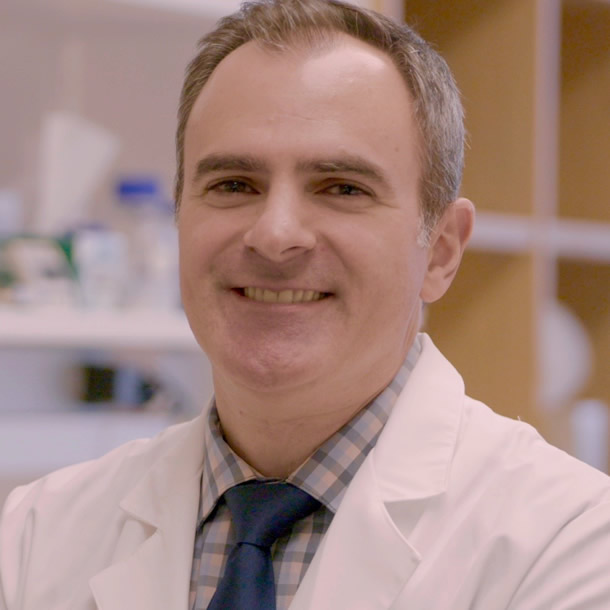
Ralph DeBerardinis, M.D., Ph.D.
Ralph DeBerardinis studies the role of altered metabolism in pediatric inborn errors of metabolism, cancer and other diseases. He is an investigator in the Howard Hughes Medical Institute and professor in the Children’s Research Institute (CRI) at UT Southwestern Medical Center. Dr. DeBerardinis earned a B.S. in biology from St. Joseph’s University and M.D. and Ph.D. degrees from the University of Pennsylvania. He then trained in pediatrics, medical genetics and clinical biochemical genetics at The Children’s Hospital of Philadelphia before moving to UT Southwestern in 2008. Dr. DeBerardinis now serves as chief of pediatric genetics and metabolism at UT Southwestern, where his clinical team seeks to improve diagnostics and care of children with genetically-defined metabolic disorders. He also directs the CRI’s Genetic and Metabolic Disease Program, which performs basic and translational research to discover new aspects of metabolic disease amenable to clinical intervention. The DeBerardinis laboratory has identified many metabolic pathways that support cancer cell growth and has pioneered the use of stable isotope tracers to assess metabolic flux in living tumors in mice and humans. Dr. DeBerardinis received an Outstanding Investigator Award from the National Cancer Institute in 2017.

Marc Diamond, M.D.
Marc Diamond, M.D., is the founding director of the Center for Alzheimer’s and Neurodegenerative Diseases and is a professor of neurology and neurotherapeutics. Dr. Diamond completed an internship, residency and chief residency in neurology at the University of California, San Francisco (UCSF) in 1997. After a postdoctoral fellowship, he was a faculty member in the Neurology Department at UCSF from 2002–2009. From 2009–2014, he was the David Clayson Professor of Neurology at Washington University in St. Louis, before he was recruited to UT Southwestern. His research focuses on molecular mechanisms of neurodegeneration in Alzheimer’s disease and related disorders, with the goal of developing novel therapies and diagnostic tools. A therapeutic antibody he co-developed at Washington University in St. Louis is now entering clinical trials for treatment of dementia. The Center for Alzheimer’s and Neurodegenerative Diseases is comprised of a multidisciplinary group of investigators who are focused on understanding the basis of progressive protein aggregation in human disease. They are using this knowledge to hasten the day when neurodegeneration can be detected pre-symptomatically and stopped before it causes disability.
Learn More >
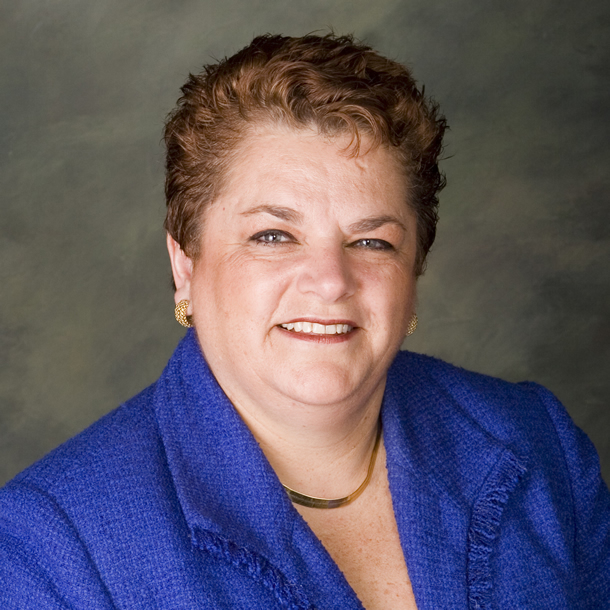
Nancy W. Dickey, M.D.
After nearly 12 years of service as president of the Texas A&M Health Science Center (TAMHSC) and vice chancellor for health affairs for The Texas A&M University System Dr. Dickey returned to the College of Medicine where she serves a number of roles both academic and administrative. During her tenure, the health science center grew the number of programs and number of graduates, expanded its research programs, and extended its service to the citizens of Texas.
Currently, she serves as executive director of the Rural and Community Health Institute working with physicians and hospitals across the state of Texas to facilitate best practices in patient safety, enhanced quality of care, and physician excellence and demonstrating the importance of translation of sound policy and evidence based medicine across the spectrum of practice sites and care delivery. Since July 2017, she has been the Department Head of the Department of Primary Care Medicine.
Other roles at A&M include service as interim dean of the TAMHSC-College of Medicine (June 2000 until Dec. 31, 2001) and founding director of the TAMU Family Medicine Residency. Dickey was the first woman elected president of the American Medical Association. She is the recipient of numerous awards: Institute of Medicine (2007), Texas’s Women’s Hall of Fame (2010), and six honorary doctorate degrees.
Learn More >
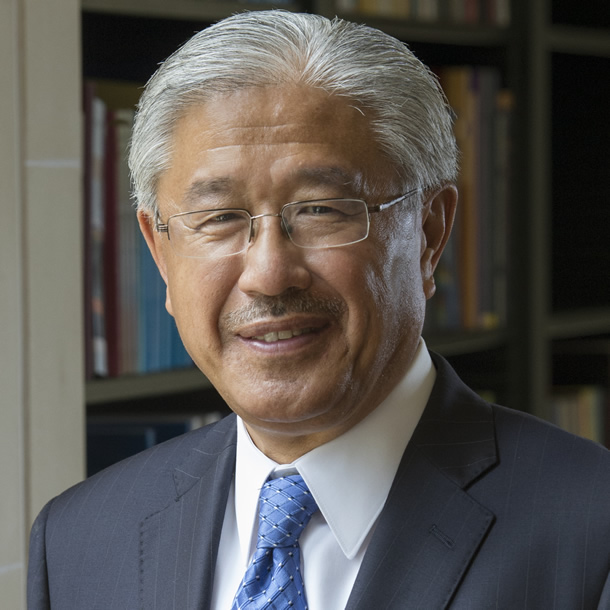
Victor Dzau, M.D. (NAM)
Victor J. Dzau is the president of the U.S. National Academy of Medicine (NAM). In addition, he serves as vice chair of the U.S. National Research Council. He is chancellor emeritus and James B. Duke Professor of Medicine at Duke University and the past president and CEO of the Duke University Health System. Previously, Dr. Dzau was the Hersey Professor of Medicine and chairman of medicine at Harvard Medical School’s Brigham and Women’s Hospital, as well as Bloomfield Professor and chairman of medicine at Stanford University.
He is an internationally acclaimed leader and scientist has made a significant impact through his seminal research in cardiovascular medicine and genetics. His important work on the renin angiotensin system paved the way for the contemporary understanding of cardiovascular disease. He pioneered gene therapy for vascular disease and was the first to introduce DNA decoy molecules to block transcription as gene therapy in humans. His pioneering research in cardiovascular regeneration led to the Paracrine Hypothesis of stem cell action and the therapeutic strategy of direct cardiac reprogramming.
In his role as a leader in health, Dr. Dzau has led efforts in innovation to improve health. At the National Academies, Dr. Dzau has designed and led important initiatives, such as the Commission on a Global Health Risk Framework for the Future; the Human Gene Editing Initiative; and Vital Directions for Health and Health Care. The launch of the NAM Grand Challenges in Healthy Longevity represents his vision to inspire across disciplines and sectors to coalesce around a shared priority and audacious goal to advance health.
Dr. Dzau has served on the advisory committee to the NIH Director and as chair of the NIH Cardiovascular Disease Advisory Committee. He chairs the steering committee of the NIH Progenitor Cell Translational Consortium. He serves on the Advisory Council of Imperial College Health Partners of UK, Health and Biomedical Sciences Council of Singapore, chairs International Science Advisory Committee of the Qatar Genome Project, chairs the Scientific Boards of the Peter Munk Cardiac Center of University of Toronto and Institute of Cardiovascular and Medical Sciences of University of Glasgow. He served on the Board of Health Governors of the World Economic Forum and chaired its Global Futures Council on Healthy Longevity and Human Enhancement.
Among his many honors and recognitions are the Gustav Nylin Medal from the Swedish Royal College of Medicine, the Research Achievement Award from the American Heart Association, the Ellis Island Medal of Honor, the Poulzer Prize of the European Academy of Sciences and Arts and the Henry Freisen International Prize. He is a member of the National Academy of Medicine, American Academy of Arts and Sciences, Academia Sinica and European Academy of Sciences and Arts. He has received fourteen honorary doctorates.
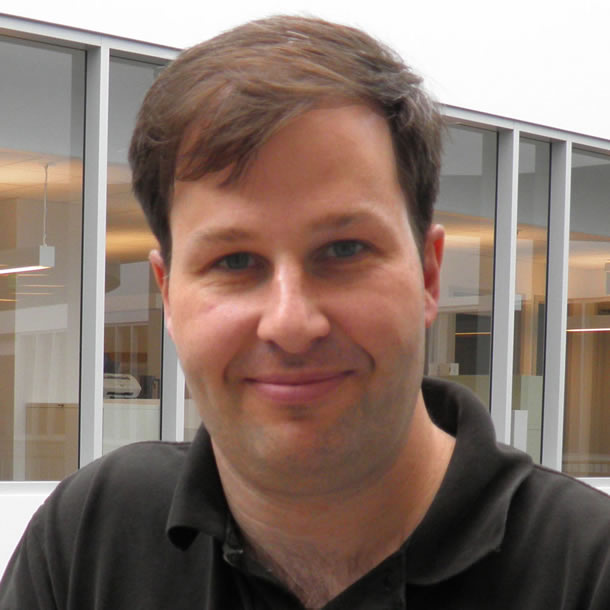
Loren M. Frank, Ph.D.
Loren Frank is Howard Hughes Medical Institute Investigator and a Professor in the Department of Physiology at the University of California, San Francisco (UCSF). He is also the Co-Director of the recently established Kavli Institute for Fundamental Neuroscience at UCSF. He received his B.A. in Psychology and Cognitive studies from Carleton College, his Ph.D. in Systems Neuroscience and Computation from M.I.T. and did post-doctoral research at Massachusetts General Hospital and Harvard University. His laboratory uses a combination of techniques to study the neural bases of learning, memory and decision-making. In particular, his work focuses on the hippocampus and related structures, brain areas critical for forming and retrieving memories for the events of daily life. He is also currently working in close collaboration with colleagues from Lawrence Berkeley and Lawrence Livermore National Laboratories to develop new technologies to understand how the brain works and how to fix it when it is not working properly. Dr. Frank has received numerous awards for his scientific discoveries and his mentoring, including fellowships from the Sloan, McKnight and Merck Foundations as well as the Society for Neuroscience Young Investigator Award, the University of Indiana Gill Young Investigator Award, the UCSF Faculty Mentoring Award, and the College Mentors for Kids Inspire Award.
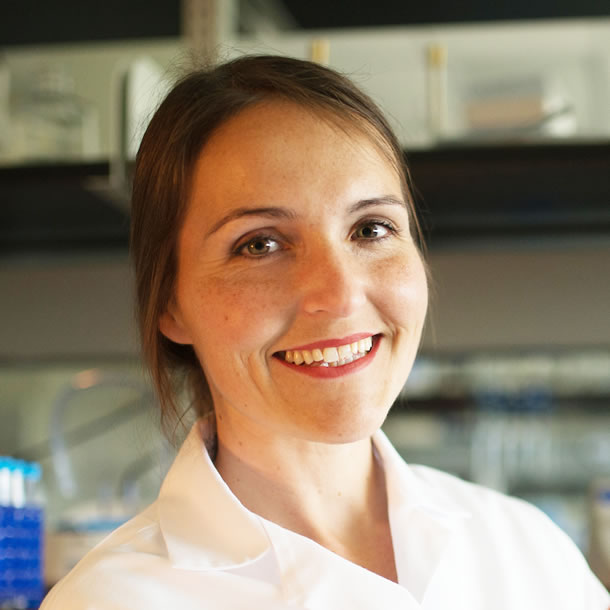
Bess Frost, Ph.D.
Dr. Bess Frost is an Assistant Professor at the Barshop Institute for Longevity and Aging Studies, the Glenn Biggs Institute for Alzheimer’s and Neurodegenerative Disease, and the department of Cell Systems and Anatomy at The University of Texas Health San Antonio. Dr. Frost obtained her undergraduate degree from The University of Texas at Austin. She went on to earn her Ph.D. from the University of California San Francisco in the laboratory of Dr. Marc Diamond. As a graduate student, Bess pioneered work that ignited a now prominent area of research, which is that tau, a key pathological player in Alzheimer’s disease and other tauopathies, adopts prion-like characteristics that help explain its pathological spread through the brain and the diverse disease phenotypes of the human tauopathies. Dr. Frost performed her postdoctoral work at Harvard Medical School in the laboratory of Dr. Mel Feany, where she identified lamin dysfunction and subsequent widespread relaxation of heterochromatic DNA as a novel mechanism whereby pathogenic forms of tau cause neuronal death in Alzheimer’s disease and related tauopathies. Dr. Frost’s laboratory studies fundamental processes in cell biology that drive age-related neurodegenerative disorders. A current major focus is on the consequences of tau-induced disruption of nuclear and genomic architecture in regard to RNA handling and transposable element activation.
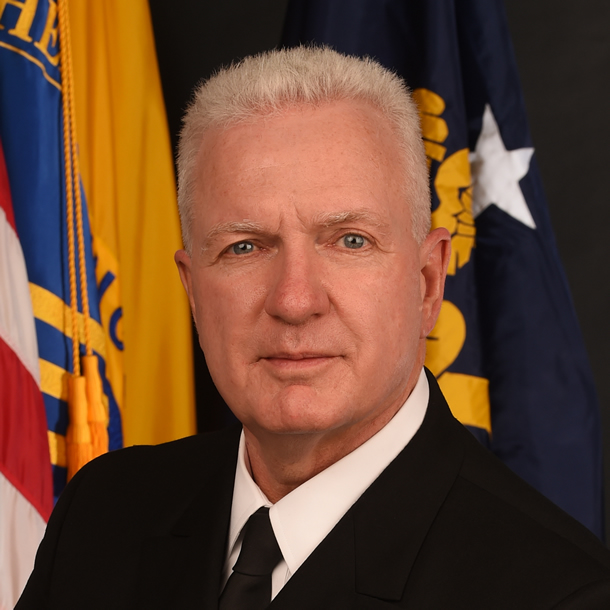
ADM. Brett P. Giroir, M.D.
Admiral Brett P. Giroir is the Assistant Secretary for Health at the U.S. Department of Health and Human Services. He is the Secretary’s principal public health and science advisor and oversees the Department’s broad-ranging public health offices, whose missions include HIV policy, women’s health, disease prevention and human research protections. He also oversees the Office of the Surgeon General and the U.S. Public Health Service Commissioned Corps as well as a number of key Presidential and Secretarial advisory committees.
In addition, Dr. Giroir serves as Senior Advisor to the Secretary for Mental Health and Opioid Policy. In this capacity, he is responsible for coordinating HHS’s efforts across the Administration to fight America’s opioid crisis. Dr. Giroir is both a physician and a scientist who has served in leadership positions in the federal government as well as academia. A pediatric critical care physician, Dr. Giroir cared for critically ill children for 14 years and was the first chief medical officer of Children’s Health in Dallas. Dr. Giroir has published nearly 100 peer-reviewed publications and holds patents on a number of biomedical inventions. He received a bachelor’s degree in biology from Harvard University and a medical degree from The University of Texas Southwestern Medical Center.
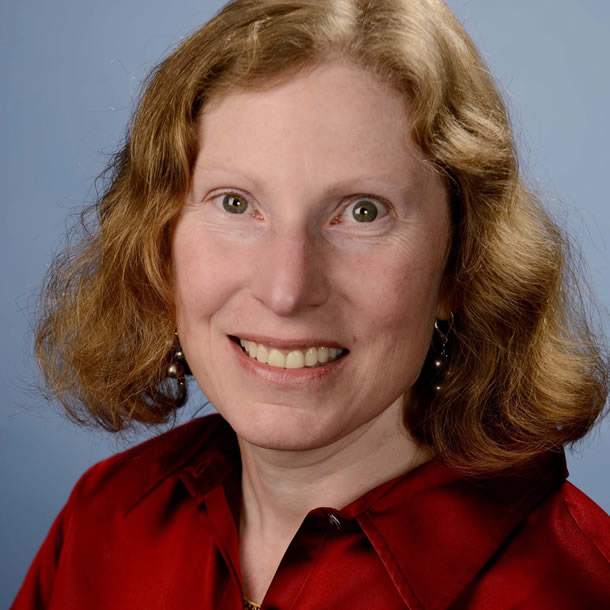
Andrea C. Gore, Ph.D.
Dr. Andrea Gore is Professor and Vacek Chair in Pharmacology at The University of Texas at Austin. Her research team is investigating how environmental endocrine-disrupting chemicals (EDCs) perturb the developing brain, sex differences in EDC actions, and transgenerational epigenetic effects of EDCs. She has been continuously funded by the NIH and/or NSF since 1995, Dr. Gore has published four books and 165 scientific papers. She recently completed a five-year term as editor-in-chief of the Endocrine Society’s flagship journal Endocrinology. She is also very active in advocacy for, mentorship of, and education of trainees, including postdoctoral fellows, graduate students, and undergraduates. Dr. Gore has received a number of honors, including election as Fellow of the American Association for the Advancement of Science in 2008, the University of Texas’s Edith Clarke Woman of Excellent Award in 2016, and the Endocrine Society’s Laureate Award for Outstanding Public Service in 2016.
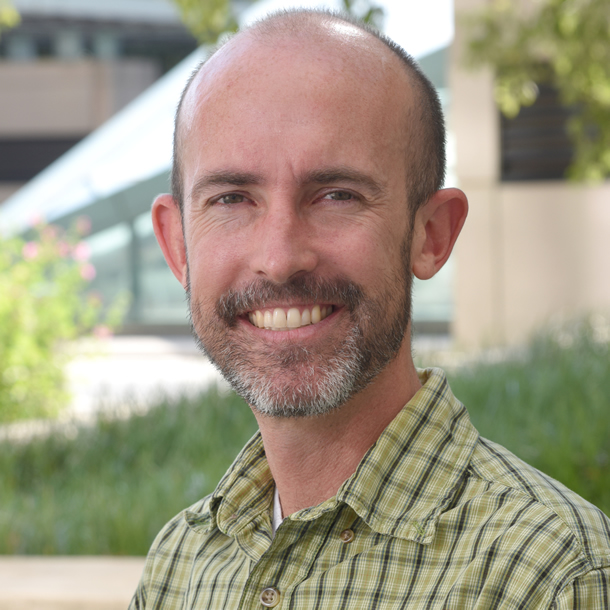
Ryan Hibbs, Ph.D.
Dr. Ryan Hibbs graduated from Whitman College, with a combined degree in chemistry/biochemistry. During doctoral research at the University of California, San Diego, he studied ligand recognition and conformational changes in an ion channel ligand binding domain under the supervision of Dr. Palmer Taylor (Department of Pharmacology). As a postdoctoral fellow, he studied the structure and function of ligand-gated ion channels in the laboratory of Dr. Eric Gouaux (HHMI/Vollum Institute). Dr. Hibbs joined the faculty in UT Southwestern Medical Center’s Departments of Neuroscience (primary) and Biophysics (secondary) in 2012. His laboratory is pursuing structural mechanisms of neurotransmitter receptor function, with a current focus on nicotinic acetylcholine receptors and GABA-A receptors. We bring complementary methods to bear on study of these receptors including x-ray crystallography, cryo-electron microscopy, pharmacology and electrophysiology. We are also engaged in developing improved methods for expression and structural analysis of eukaryotic membrane proteins and complexes.

Jenny Hsieh, Ph.D.
Dr. Jenny Hsieh is the Professor and Semmes Foundation Chair in Cell Biology and Director of the UTSA Brain Health Consortium. The UTSA Brain Health Consortium is a campus-wide multidisciplinary research initiative which spans neuroscience, regenerative medicine, stem cell biology, chemical biology and bioengineering with over 40 participating full-time faculty members. As part of the Brain Health Consortium, the Hsieh lab research focuses on mechanisms that regulate neural stem cells and neurogenesis in the mammalian brain. The lab also studies health conditions by using human induced pluripotent stem cells (iPSCs) and CRISPR/Cas9 gene editing technology as approaches to understand mechanisms underlying brain disorders. Dr. Hsieh comes to UTSA from UT Southwestern, where her lab made significant contribution to understanding the role of epigenetic and transcriptional regulation in adult neurogenesis. A major focus of the lab was to understand the transcriptional/epigenetic regulatory circuitry that guides neural stem cell fate decisions in both normal and pathological states, and this work continues at UTSA. Beyond her role at UTSA, Dr. Hsieh serves as a permanent study section member for the National Institutes of Health (NIH). She is also on the editorial board as a reviewing editor for Journal of Neuroscience and Epilepsy Currents.
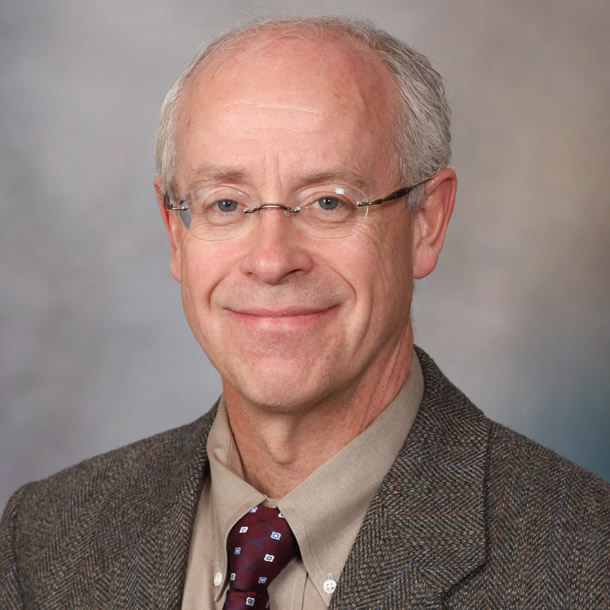
Clifford R. Jack Jr., M.D. (NAM)
Clifford R. Jack Jr., M.D., is engaged in brain imaging research in cognitive aging and Alzheimer’s disease and related disorders. Dr. Jack’s research group employs imaging to study the biology of brain aging and cognitive impairment. They also develop image-processing algorithms for quantitatively measuring the information obtained from brain imaging. They employ a variety of brain imaging modalities including anatomic MRI, MR spectroscopy, functional connectivity MR, diffusion MRI, FDG PET, amyloid PET, and tau PET.
Dr. Jack’s group serves as the MR center for several large multi-site observational and interventional studies including ADNI and A4. He has received the Potamkin Prize from the American Academy of Neurology, ISMRM Gold Medal, MetLife Foundation Award, RSNA Outstanding Researcher Award, and is a member of the Association of American Physicians and the American Academy of Medicine (formerly Institute of Medicine).
Learn More >

S. Claiborne “Clay” Johnston, M.D., Ph.D.
Since March 2014, Dr. Clay Johnston has served as the inaugural Dean of Dell Medical School and Vice President for Medical Affairs at The University of Texas at Austin. His vision is to create a new model for academic medicine that accelerates innovation to improve health and reduce inefficiencies in health care. That includes building a vital, inclusive health ecosystem to support new and innovative models of education, care, research and community impact – all with a focus on improving health locally as a model for accelerating change nationally. He is also a neurologist, specializing in stroke care and research.
Previously, Dr. Johnston was Associate Vice Chancellor for Research at the University of California, San Francisco (UCSF). He also directed the Clinical and Translational Science Institute and founded the UCSF Center for Healthcare Value to engage faculty and trainees in improving the quality of care while also lowering costs.
He is a graduate of Amherst College and Harvard Medical School. He later received a Ph.D. in epidemiology from the University of California, Berkeley, and was a resident in Neurology at UCSF, where he later trained in Vascular Neurology. During his 20 years at UCSF, he rose the academic ranks to Professor of Neurology and Epidemiology, and directed the Stroke Service.
Clay has authored more than 300 publications in scientific journals and has won several national awards for his research and teaching. In particular, he has published extensively in the prevention and treatment of stroke and transient ischemic attack. He is perhaps best known for his studies describing the short-term risk of stroke in patients with transient ischemic attack and identifying patients at greatest risk, and also for his work related to measuring the impact of research. He has led several large cohort studies of cerebrovascular disease and three international multicenter randomized trials, two of which are ongoing.
Follow on Twitter: @ClayDellMed
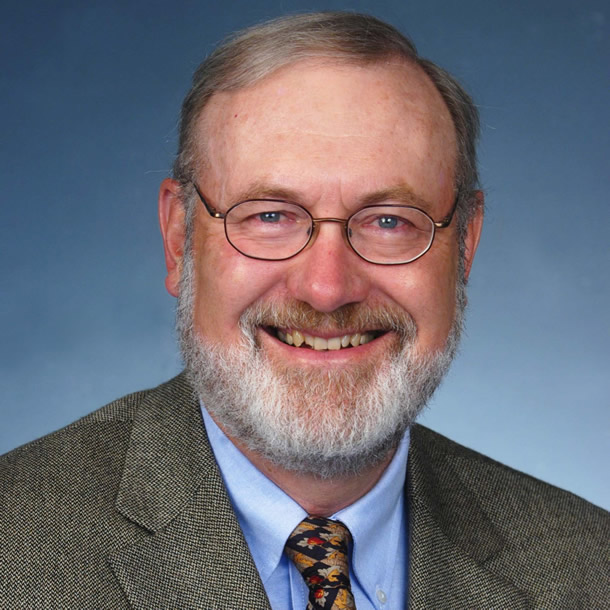
Daniel Johnston, Ph.D.
Dr. Daniel Johnston is the founding director of the Center for Learning and Memory. He also holds the Karl Folkers endowed Chair in Interdisciplinary Biomedical Research. He has been active in his field of research (cellular neurophysiology) for over 35 years with continuous grant funding throughout (both individual and program projects), and has co-authored an influential textbook on the topic (Foundations of Cellular Neurophysiology-Johnston & Wu). He has successfully trained three M.S. students, 20 Ph.D. students and 37 postdoctoral fellows, some of whom were M.D.s and some who were M.D./Ph.D.s. He has also been a mentor for many NRSAs and several K awards.
Learn More >

Sheena Josselyn, Ph.D.
Sheena Josselyn is a Senior Scientist in the Neurosciences & Mental Health program at The Hospital for Sick Children (SickKids) and a professor in the Departments of Psychology and Physiology and the Institute of Medical Sciences at the University of Toronto in Canada. She holds a Canada Research Chair in Molecular and Cellular Cognition and is an EJLB Scholar. Her undergraduate degrees and a Masters degree in Clinical Psychology were granted by Queen’s University in Kingston (Canada). Her mentor was Dr. Richard Beninger. Sheena received a Ph.D. in Neuroscience/Psychology from the University of Toronto with Dr. Franco Vaccarino as her supervisor. She conducted post-doctoral work with Dr. Mike Davis (Yale University) and Dr. Alcino Silva (UCLA). Her program of research is dedicated to understanding the neural basis of cognitive function and dysfunction. To unravel the molecular, cellular and circuit processes that underlie memory, her lab uses a multidisciplinary approach that focuses on mice and attempts to translate these basic findings into humans.
Dr. Josselyn received the Innovations in Psychopharmacology Award from the Canadian College of Neuropsychopharmacology (CCNP) and the Effron Award from the American College of Neuropsychopharmacology (ACNP).

Andrew Barclay Keller, Ph.D.
Dr. Keller is a psychologist with more than 20 years of experience in behavioral health policy and is a recognized leader in health and human services integration and behavioral health financing. His work has centered on helping local systems implement evidence-based and innovative care as well as helping local and state governments develop the regulatory and financial framework to support them. Dr. Keller was also a founding partner of TriWest Group, a national behavioral health systems consulting firm, focused on evaluation, community collaboration and management. Prior to forming TriWest, Andy worked in Colorado at the health plan level with a leading Medicaid HMO and at the provider level with the Mental Health Center of Denver, where he directed and led a range of community-based programs.

Genevieve Konopka, Ph.D.
Genevieve Konopka is an Associate Professor of Neuroscience and the Jon Heighten Scholar in Autism Research at UT Southwestern Medical Center in Dallas, Texas. Dr. Konopka received dual B.S. degrees in Brain and Cognitive Sciences and Biology from MIT and completed her Ph.D. in Neurobiology at Harvard University. The research in the Konopka lab focuses on understanding the molecular pathways important for human brain evolution that are also at risk in cognitive disorders such as autism, schizophrenia, and Alzheimer’s disease. Her lab uses a combination of human neurons, animal models, and primate comparative genomics to uncover human-specific, disease-relevant patterns of gene expression. Dr. Konopka is particularly interested in the molecular mechanisms underlying language and part of her research has focused on the FOXP family of transcription factors. Recent work in her lab integrates gene expression with signatures of neuronal activity in the human brain.

David Lakey, M.D.
David Lakey, M.D., an expert in disease prevention, community health services and infectious disease outbreaks, serves in a duel role as Vice Chancellor for Population Health and Chief Medical Officer at The University of Texas System and Senior Advisor to the President and Isadore Roosth Distinguished Professor at The University of Texas Health Science Center at Tyler. He was the Commissioner of the Texas Department of State Health Services from 2007 to 2015.

Ed Lein, Ph.D.
Ed Lein is an investigator at the Allen Institute for Brain Science and an affiliate professor in the Department of Neurological Surgery at the University of Washington. He received a B.S. in biochemistry from Purdue University and a Ph.D. in neurobiology from UC Berkeley and performed postdoctoral work at the Salk Institute for Biological Studies. He joined the Allen Institute in 2004 and has provided scientific guidance for the creation of large-scale gene expression atlases of the adult and developing mammalian brain as catalytic community resources, including the inaugural Allen Mouse Brain Atlas and developing and adult human and non-human primate brain atlases. Particular interests of Dr. Lein include using transcriptomics as a core phenotype to understand brain organization at the regional, cellular and functional brain level, to understand what is unique about human brain, and to understand what is disrupted in brain diseases. He now leads the Human Cell Types program which aims to create a comprehensive understanding of human cortical cell types and circuits using quantitative single cell transcriptomic, anatomical and functional methods.
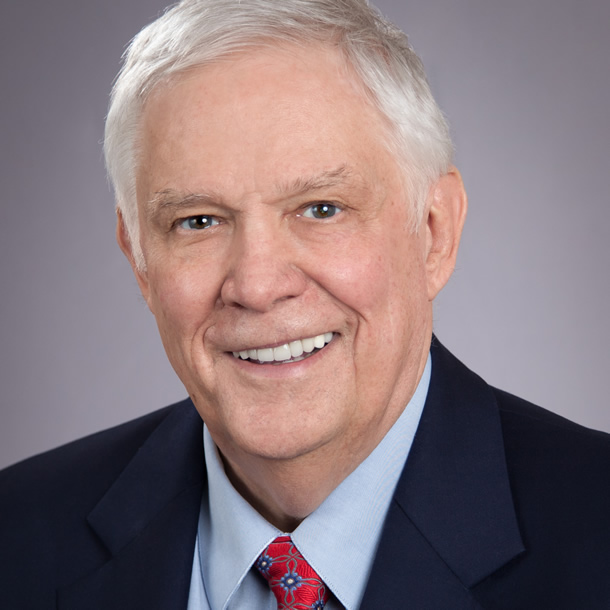
Tom Luce, J.D.
Tom Luce’s life has been one of family, professional accomplishments, public service and social entrepreneurship. Tom has been married to his life partner, Pam, for 58 years. They have three adult children, a daughter-in-law and seven grandchildren.
Tom was the founding and managing partner of the Hughes and Luce law firm. His career was centered on corporate law and commercial litigation. He was lead attorney on multibillion mergers and litigation and was selected at various points in his career as one of Dallas, Texas, and U.S. best attorneys.
His public service in Texas was distinguished by gubernatorial and legislative appointments to major state positions including Chief Justice of the Supreme Court pro tempore, member of the Sunset Commission, Superconducting Super Collider Commission, Cancer Prevention and Research Institute, Texas Commission on Judiciary, Chief of Staff of the Select Committee on Public Education, and Education Commission of the States.
He was appointed Assistant Secretary for Education by President George W. Bush and appointed to The Library of Congress Board by the Speaker of the U.S. House of Representatives.
He has founded and lead numerous nonprofit organizations dedicated to serving the needs of others including the Meadows Mental Health Policy Institute.
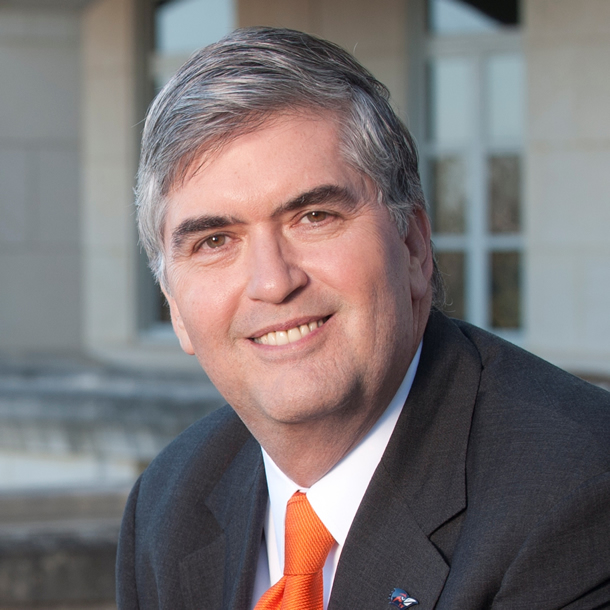
George Perry, Ph.D.
George Perry is Chief Scientist, Brain Health Consortium and Professor of Biology and Chemistry at The University of Texas at San Antonio. Perry is recognized in the field of Alzheimer’s disease research particularly for his work on oxidative stress.
Perry received his Bachelor of Arts degree in Zoology with high honors from University of California, Santa Barbara. After graduation, he headed to Scripps Institution of Oceanography and obtained his Ph.D. in marine biology under David Epel in 1979. He then received a postdoctoral fellowship in the Department of Cell Biology in the laboratories of Drs. Bill Brinkley and Joseph Bryan at Baylor College of Medicine where he laid the foundation for his observations of abnormalities in cell structures.
In 1982, Perry joined the faculty of Case Western Reserve University, where he currently holds an adjunct appointment. He is distinguished as one of the top Alzheimer’s disease researchers with over 1000 publications, one of the top 100 most-cited scientists in neuroscience and behavior and one of the top 25 scientists in free radical research.
Perry has been cited over 80,000 times (H=145) and is recognized as an ISI highly cited researcher. Perry is editor for numerous journals and is editor-in-chief for the Journal of Alzheimer’s Disease, the most cited in its field. He is a fellow of the American Association for the Advancement of Sciences and past-president of the American Association of Neuropathologists and the Southwestern and Rocky Mountain Division of the American Association for the Advancement of Sciences. He received the Distinguished Professional Mentor Award from the Society for the Advancement of Chicanos and Native American Scientists. He is a Foreign Correspondent Member of the Spanish Royal Academy of Sciences, Mexican Academy of Science and the Academy of Sciences Lisbon.
Perry’s research is primarily focused on how Alzheimer disease develops and the physiological consequences of the disease at a cellular level. He is currently working to determine the sequence of events leading to damage caused by and the source of increased oxygen radicals.

Julie Pfeiffer, Ph.D.
Dr. Julie Pfeiffer, professor of microbiology at The University of Texas Southwestern Medical Center, is the recipient of the 2019 Edith and Peter O’Donnell Award in Science. Dr. Pfeiffer’s research examines how viruses evolve and cause disease. She determined that intestinal bacteria can enhance infection with enteric viruses, which could lead to new therapeutic approaches.
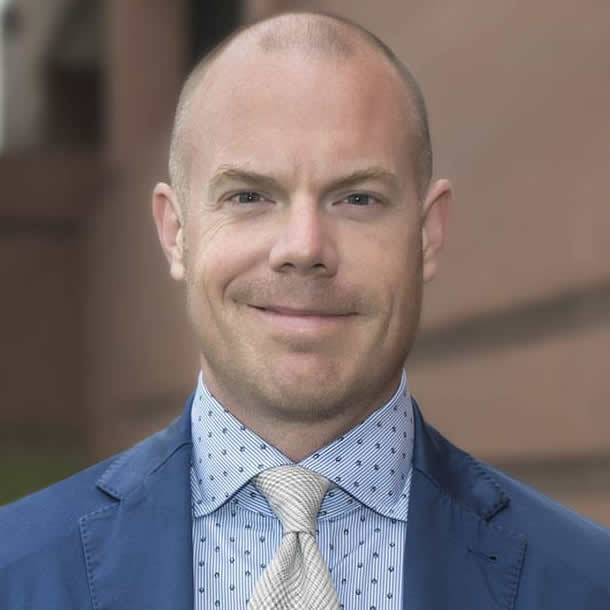
Theodore John Price, Ph.D.
Theodore (Ted) Price is the Director of the Systems Neuroscience Program in the School of Behavioral and Brain Sciences. His lab is interested in molecular mechanisms driving the transition to chronic pain with a focus on drug development for chronic pain disease modification. He has won numerous awards including the John C Liebeskind Early Career Scholar Award from the American Pain Society and The Patrick D. Wall Young Investigator Award from the International Association for the Study of Pain. Ted serves on editorial boards for leading pain and neuroscience journals and is a standing member of the Somatosensory and Pain Study Section for NIH.

Jim Ray, Ph.D.
William J. Ray, Ph.D., is the Director of The Neurodegeneration Consortium (NDC), a multi-institutional collaboration whose mission is to slow, stop, or reverse AD and related neurodegenerative diseases. The NDC is a collaboration between investigators at Baylor College of Medicine, the Massachusetts Institute of Technology, and the drug discovery center based at MD Anderson Cancer Center in Houston, TX. Prior to joining the NDC in April 2015, Dr. Ray was Director, CNS Research at Takeda Pharmaceuticals, and led several drug discovery projects from basic research into development for schizophrenia, Parkinson’s disease, autism, and other CNS disorders. He joined Takeda in 2013 as part of their acquisition of the biotech start-up Envoy Therapeutics, where he was Senior Director and responsible for developing both a pipeline of CNS therapeutics as well as a platform technology. Prior to Envoy Therapeutics, Dr. Ray spent 11 years at Merck, where he led multiple research projects in Alzheimer’s disease, including MK-7622, Merck’s investigational M1 muscarinic receptor potentiator. He earned his Ph.D. from Washington University Medical School in Neuroscience.
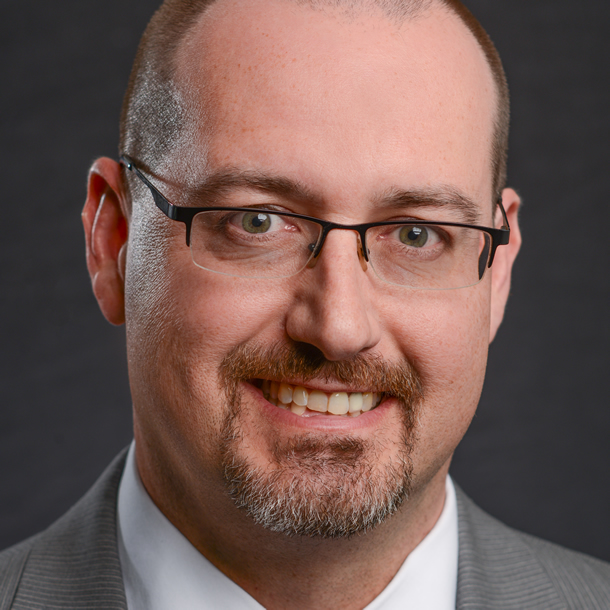
Jason Richardson, Ph.D.
Dr. Jason Richardson is Professor and Associate Dean for Research in the Robert Stempel College of Public Health and Social Work at Florida International University. He is a Diplomate of the American Board of Toxicology (DABT) and a Fellow of the Academy of Toxicological Sciences (ATS). Dr. Richardson received his M.S. and Ph.D. degrees from Mississippi State University and completed postdoctoral training in at Emory University. He spent 10 years at Rutgers Robert Wood Johnson Medical School and the Environmental and Occupational Health Sciences Institute, where he served as Deputy Director and Director of the Joint Graduate Program in Toxicology. He then moved to Northeast Ohio Medical University, where he founded the Center for Neurodegenerative Disease and Aging. Dr. Richardson has served as a reviewer and Chair for several NIH grant review panels and has authored or co-authored over 90 peer-reviewed publications. He received the Outstanding New Environmental Scientist Award from NIEHS and was the inaugural recipient of the Young Investigator Award from the Toxicology Division of ASPET. He received the SOT Achievement Award in 2017. Dr. Richardson’s research focuses on the role of environmental exposures and their interactions with genetic susceptibility as contributors to neurological disease using translational approaches.

Michael D. Rugg, Ph.D.
Michael Rugg obtained his B.Sc. and Ph.D. in psychology from the University of Leicester, UK. Following a postdoctoral year at the University of York in 1979, he was appointed to a lectureship in psychology at the University of St Andrews, where he went on to become professor of psychology and chair of the department. In 1998, he moved to the Institute of Cognitive Neuroscience, University College London as professor of cognitive neuroscience and Wellcome Trust Principal Research Fellow, where he remained until 2003, when he moved to the University of California, Irvine as a professor of neurobiology and (as of 2004) became director of The Center for the Neurobiology of Learning and Memory. He moved to The University of Texas at Dallas in January 2011 as Distinguished Chair in Behavioral and Brain Sciences and is currently director of UTD’s Center for Vital Longevity.
Professional recognition includes fellowship of the Royal Society of Edinburgh, the American Association for the Advancement of Science and the Association for Psychological Science. He is past-chair of the Cognition and Perception Study Section of the Center for Scientific Review, National Institutes of Health, and current chair of the Neurobiology of Learning and Memory Study Section.
Dr. Rugg’s principal research interests are in the cognitive neuroscience of human memory, and how and why memory is affected as we age and as a result of disease, especially diseases of old age. He uses functional neuroimaging, electroencephalography and transcranial magnetic stimulation to identify the neural regions and the patterning of their functional activity that allow memories to be acquired and retrieved. His research addresses fundamental questions about how we learn and remember, and translational issues such as identifying people most at risk of developing disorders of memory in later life. Currently funded research projects focus of the neural mechanisms of memory encoding and retrieval, and on the brain basis of individual differences in memory function across the lifespan.
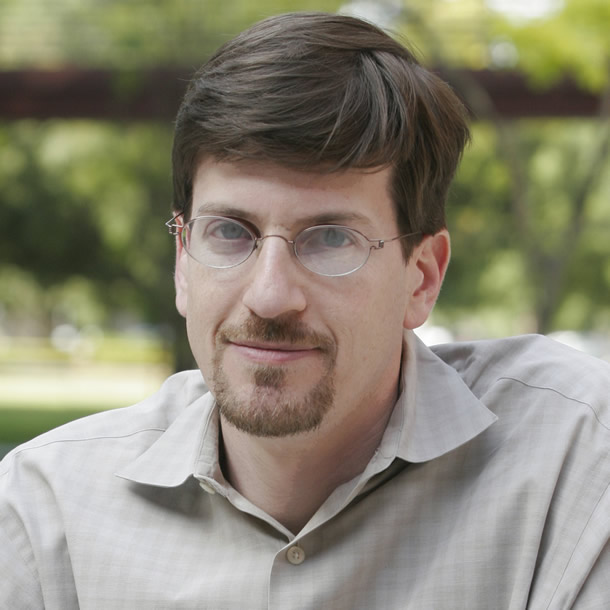
Mark Schnitzer, Ph.D.
Dr. Schnitzer is an investigator of the Howard Hughes Medical Institute (HHMI) and a faculty member in Stanford’s Departments of Applied Physics and Biology. His work has focused on the innovation and application of novel optical imaging technologies toward understanding how large neural ensembles control animal behavior. In the past 10 years, his lab has innovated several technologies that are now commercially available, including tiny fluorescence microscopes small enough to be mounted on the head of a freely moving mouse (Nat. Methods, 2011). This technology won The Scientist’s Top Innovation of 2013, is now available from Inscopix Inc. and is presently used by over 300 neuroscience labs worldwide in the USA, Asia and Europe. His work on brain imaging was recognized by the 2010 Young Investigator Award from the Biophysical Society. He was also a member of the NIH BRAIN Initiative Advisory Committee that wrote the BRAIN 2025 report. His lab is now using their optical inventions extensively to study neural circuits in behaving mice and flies. Their biological interests center on understanding the large-scale circuit dynamics underlying cognition and long-term memory. Fourteen of his trainees have become principal investigators.

Sudha Seshadri, M.D.
Dr. Sudha Seshadri, M.D., FAAN, FANA is a behavioral neurologist and Founding Director of the Glenn Biggs Institute for Alzheimer’s and Neurodegenerative Diseases. She holds the Robert R. Barker Distinguished University Chair as Professor of Neurology, Psychiatry and Physiology at The University of Texas Health Sciences Center at San Antonio. She is also an Adjunct Professor of Neurology at Boston University and a Senior Investigator within the landmark Framingham Heart Study as PI of the Dementia, Stroke, Neuroimaging and Brain Banking Initiatives.
She leads the neurology working group within the Cohorts for Heart and Aging Research in Genomic Epidemiology (CHARGE) and the NHLBI Transomics for Precision Medicine (TOPMed) consortia, is a PI in the International Genomics of Alzheimer Project (IGAP), the Alzheimer Disease Sequencing Project (ADSP) and a NINDS Biomarker initiative called ‘markVCID.’ She is currently PI on nine R01 or U01 grants, has published three books, 15 chapters and 350 papers, serves on the editorial board of Neurology and has chaired an NIH study section. She has been an invited speaker at 80 conferences world-wide, has mentored 40 physicians and scientists and works to integrate clinical care and research with population and basic neuroscience, education and advocacy.
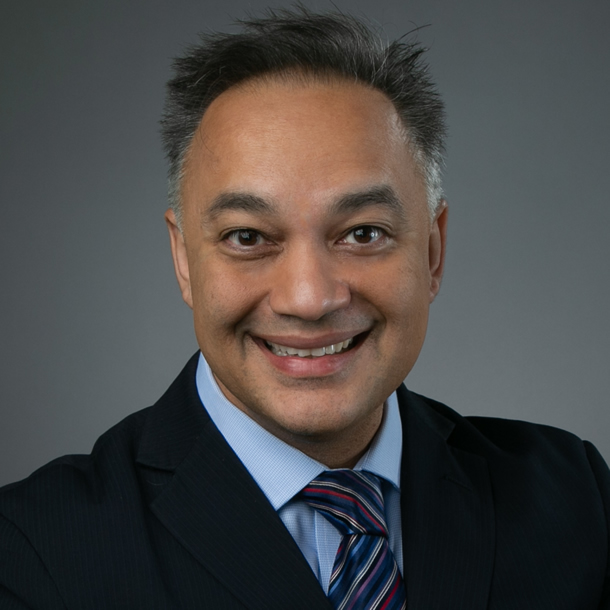
Umair A. Shah, M.D., M.P.H
Since 2013, Dr. Shah has served as executive director and Local Health Authority for Harris County Public Health (HCPH) – the county public health agency for the nation’s 3rd largest county with 4.7 million people.
Dr. Shah earned his B.A. (philosophy) from Vanderbilt University; his M.D. from the University of Toledo Health Science Center; and completed an internal medicine residency, primary care/general medicine fellowship, and M.P.H. (management), at The University of Texas Health Science Center. He also completed an international health policy internship at World Health Organization headquarters in Switzerland.
Upon completing training, Dr. Shah began a distinguished career as an emergency department physician at Houston’s Michael DeBakey VA Medical Center. He started his formal public health journey as Chief Medical Officer at Galveston County’s Health District before joining HCPH to oversee its clinical health system and infectious disease portfolio. Under his leadership, HCPH has won numerous national awards including recognition as Local Health Department of the Year from the National Association of County and City Health Officials (NACCHO) in 2016.
Dr. Shah currently holds numerous leadership positions with respected entities like the National Academies of Sciences, Engineering, and Medicine; U.S. Centers for Disease Control & Prevention; Trust for America’s Health; Network for Public Health Law; and Texas Medical Association. He is currently president of NACCHO (and past president of its Texas affiliate) representing the nation’s nearly 3,000 local health departments.
Over his career, Dr. Shah has been a clinician, an innovator, an educator and leader in public health.
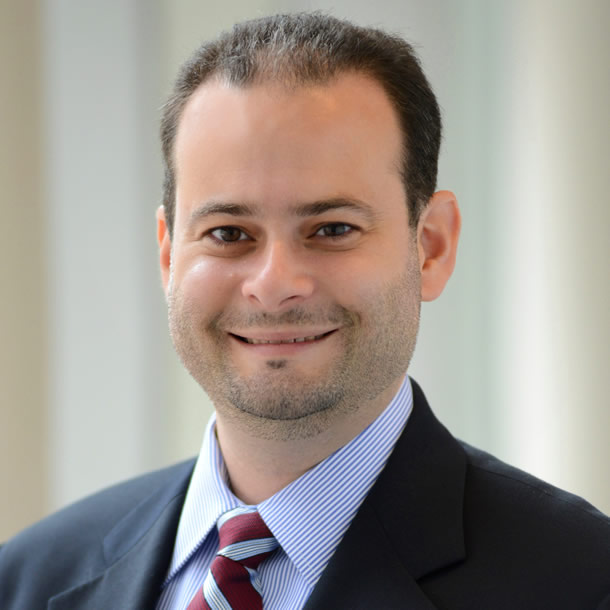
Joshua M. Shulman, M.D., Ph.D.
Joshua M. Shulman, M.D., Ph.D., is an Associate Professor of Neurology, Neuroscience, and Molecular & Human Genetics at Baylor College of Medicine (BCM) and an Investigator in the Jan and Dan Duncan Neurological Research Institute at Texas Children’s Hospital. He received an A.B. in Biochemical Sciences from Harvard College, and his Ph.D. in Genetics from Cambridge University. He subsequently studied at Harvard Medical School and the Massachusetts Institute of Technology, where he received his M.D., and completed his neurology residency and fellowship training at the Brigham & Women’s Hospital and the Massachusetts General Hospital in Boston. Dr. Shulman’s research focuses on understanding the genetic architecture and pathogenesis of neurodegenerative disorders, including Parkinson’s disease and Alzheimer’s disease, integrating genetic investigation in human subjects with functional studies in experimental animal models. He also cares for patients with Parkinson’s disease and related disorders at the BCM Parkinson’s Disease Center and Movement Disorders Clinic in Houston.
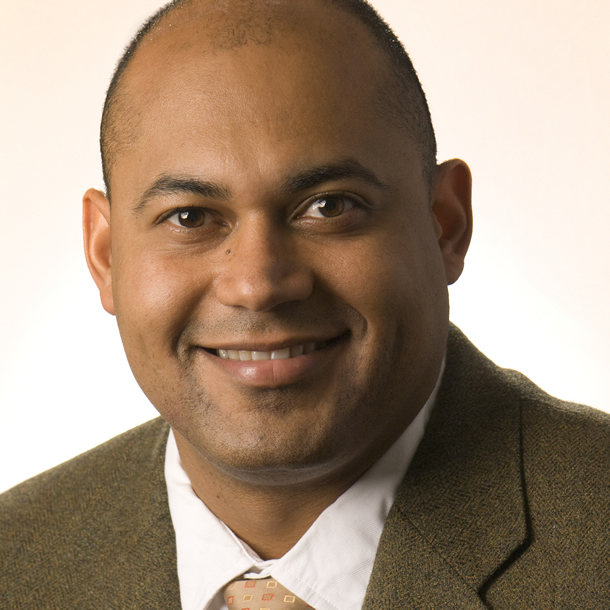
Roy V. Sillitoe, Ph.D.
Dr. Sillitoe completed his Ph.D. in Neuroscience at the University of Calgary. He received postdoctoral training at the University of Oxford, New York University, and Memorial Sloan-Kettering Cancer Center. The primary focus of his research is to understand how cerebellar circuits contribute to different diseases. The canonical cerebellar circuit, with the Purkinje cell located at its center, seems to play a role in ataxia, dystonia, and tremor. His goal is to determine how the same circuit contributes to different diseases. This is a fundamental question that applies not only to the cerebellum but also to other brain circuits and their respective diseases. To address this problem Dr. Sillitoe postulated that in each motor disease circuit behavior might be determined by how neuronal communication is altered. He therefore devised a genetic toolkit to selectively block chemical communication at each major type of cerebellar synapse. His current efforts are aimed at testing the structural, functional, and behavioral consequences of doing so. Moreover, using the mouse models he has generated, his lab is testing whether cerebellar deep brain stimulation might be an effective therapeutic strategy for motor and non-motor diseases.

Farida Sohrabji, Ph.D.
Dr. Sohrabji obtained a joint doctoral degree in neurobiology and biopsychology from the University of Rochester, Rochester, NY and completed her post-doctoral training at Columbia University, College of Physicians and Surgeons, New York. She joined the faculty of Texas A&M College of Medicine in 1998.
Dr. Sohrabji directs a federally-funded research program that focuses on sex and age differences in cerebrovascular disease, specifically, biochemical and behavioral changes that occur in stroke-related injury, including brain-immune interactions, biomarkers and therapeutics for ischemic stroke. She was recently appointed fellow of the American Heart Association (Stroke Council). Current research in her lab focuses on the therapeutic potential of the peptide hormone IGF-1 in aging females (funded by NINDS), and sex and age differences in miRNA and epigenetic markers, with a view to developing biomarkers for diseases and uncovering new therapeutic targets (NIA/ORWH). Dr. Sohrabji’s professional service includes NIH and AHA study sections. Dr. Sohrabji is actively involved in the training of graduate and medical students and mentorship of junior faculty.
Dr. Sohrabji is the founder and director of the Women’s Health in Neuroscience Program at the Texas A&M College of Medicine, and she is a strong advocate for the inclusion of gender/sex differences in biomedical research.
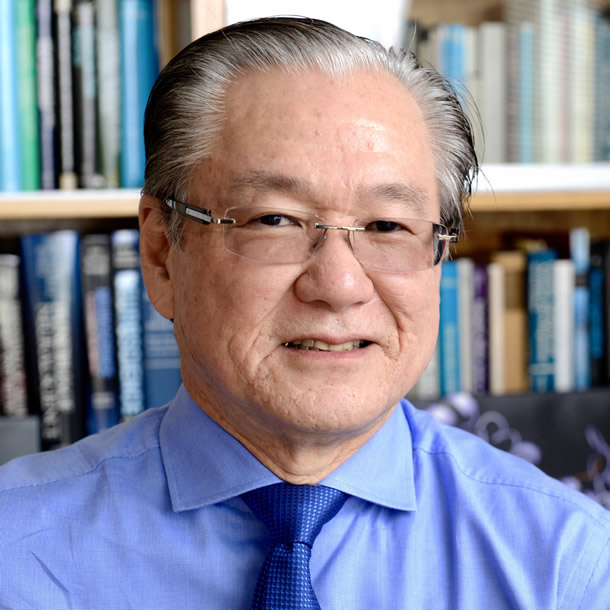
Joseph S. Takahashi, Ph.D. (NAS, NAM)
Joseph S. Takahashi, Ph.D., is the Loyd B. Sands Distinguished Chair in Neuroscience, an Investigator in the Howard Hughes Medical Institute, and Chair of the Department of Neuroscience at The University of Texas Southwestern Medical Center in Dallas. Dr. Takahashi joined the UT Southwestern faculty in 2009, and prior to that was a faculty member in the Department of Neurobiology at Northwestern University from 1983 to 2009. Dr. Takahashi utilizes forward genetics and positional cloning in the mouse as a tool for discovery of genes underlying neurobiology and behavior, and his discovery of the mouse and human clock genes led to a description of a conserved circadian clock mechanism in animals. He is the author of more than 290 scientific publications and the recipient of many awards including the Honma International Prize in Biological Rhythms Research in 1986, W. Alden Spencer Award in Neuroscience from Columbia University in 2001, and Outstanding Scientific Achievement Award from the Sleep Research Society in 2012. He was elected a fellow of the American Academy of Arts and Sciences in 2000, a member of the National Academy of Sciences in 2003, and a member of the National Academy of Medicine in 2014.

Carol A. Tamminga, M.D. (NAM)
Carol Tamminga, M.D., holds the Lou and Ellen McGinley Distinguished Chair and the McKenzie chair in Psychiatry at UT Southwestern. She is the chair of UT Southwestern’s Department of Psychiatry and Chief of the Translational Neuroscience Division in Schizophrenia.
Dr. Tamminga received her M.D. degree from Vanderbilt University and completed residency training in psychiatry at the University of Chicago. She served on the University of Chicago faculty from 1975 to 1979 and moved to the National Institute for Neurological Disorders and Stroke for training in neurology in 1978. After joining the faculty at the University of Maryland Medical School in 1979, she taught, conducted research and performed clinical care there until joining the faculty at UT Southwestern Medical Center in 2003.
Currently, she is a member of the national advisory board for the National Institute of Mental Health (NIMH) and for the Brain and Behavioral Research Foundation. She has served on NIMH’s Board of Scientific Counselors and the National Institute of Drug Abuse and as a council member and president of the American College of Neuropsychopharmacology. She has also been a member and chair of the FDA’s Psychopharmacological Drugs Advisory Committee and served as a consultant for the FDA’s Orphan Products Development Review Group. She is the deputy editor of the American Journal of Psychiatry and serves on the editorial board of several other journals in the field. Dr. Tamminga was elected to the National Academy of Medicine of the National Academies of Sciences in 1998 and has served on several Academy committees in that capacity.
The goal of Dr. Tamminga’s research is to examine and understand the mechanisms underlying schizophrenia, especially its most prominent symptoms, psychosis and memory dysfunction, in order to build rational treatments for the illness. She evaluates the function of the living human brain in individuals with and without schizophrenia, using brain imaging techniques. Then, building on this knowledge, she uses human postmortem brain tissue to develop molecular observations of the illness. Her ultimate goal is to use the molecular changes she identifies both as biomarkers for the illness and as targets on which to base new drug therapies for psychosis and memory dysfunction.
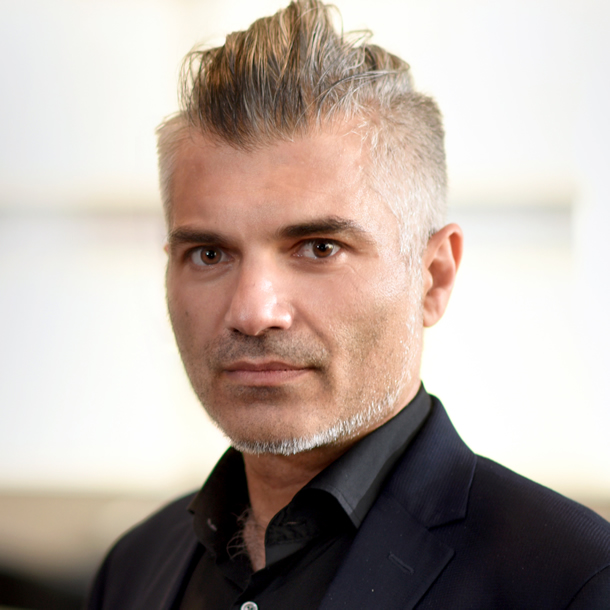
Andreas Tolias, Ph.D.
Dr. Tolias studies how microcircuits in the cerebral cortex of mice and non-human primates are functionally organized and how they process information. Research in his lab combines electrophysiological (whole-cell and multi-electrode extracellular), multi-photon imaging, molecular, behavioral and computational methods. His goal is to dissect and understand the functional organization of neocortical microcircuits and decipher their structure and the canonical computations they perform with an emphasis on the role top-down influences in visual processing. In parallel his research team is also trying to apply these canonical computation principles in machine learning tasks in order to advance the field of artificial intelligence.
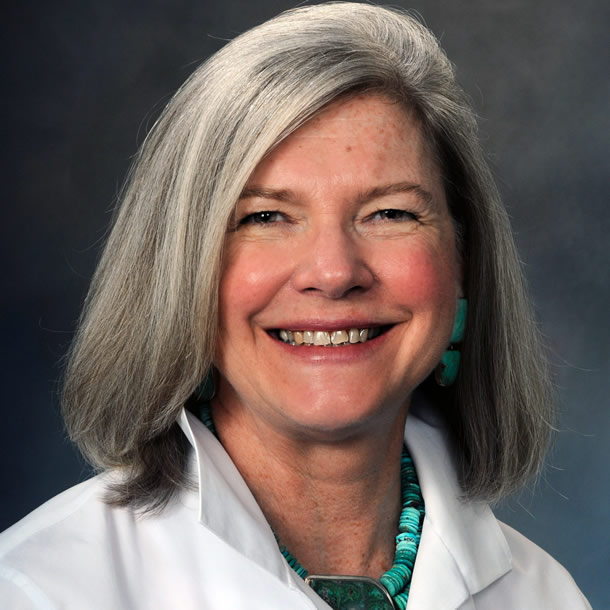
Cheryl Walker, Ph.D.
Dr. Walker is the director of the Center for Precision Environmental Health at Baylor College of Medicine, where she holds the Alkek Presidential Chair in Environmental Health and is a Professor in the departments of Molecular & Cell Biology and Medicine. Dr. Walker is internationally recognized for her work in environmental health and elucidation of molecular mechanisms of disease. Her studies on the role of the epigenome in gene-environment interactions have yielded signifiant insights into mechanisms by which early life environmental exposures influence health and disease across the life course.
Dr. Walker received a B.A. from the University of Colorado-Boulder in molecular, cellular and developmental biology, and a Ph.D. in cell biology from The University of Texas Southwestern Medical School, with additional post-doctoral training as a staff fellow at NIEHS. She is a fellow of the Academy of Toxicological Sciences and the AAAS, and a member of the National Academy of Medicine. She currently serves on the board of scientific advisors for the National Cancer Institute and the committee on “Gulf War and Health: Generational Health Effects of Serving in the Gulf War” for the National Academy of Sciences. She is also the Director of the new NIEHS T32 Training Program in Precision Environmental Health.
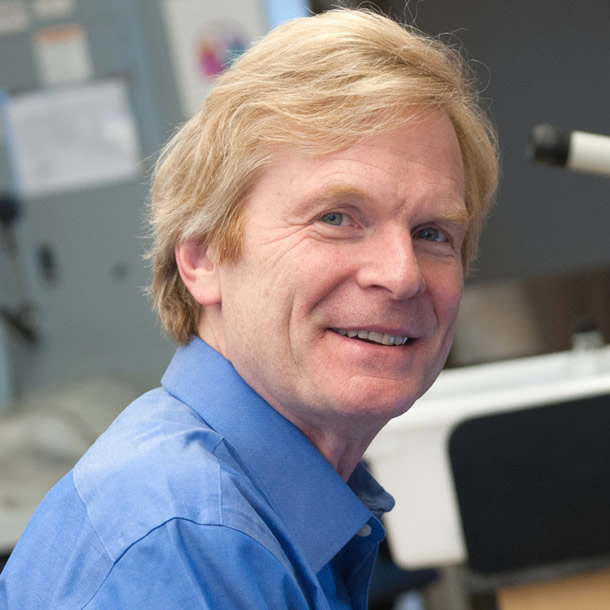
Christopher A. Walsh, M.D., Ph.D. (NAM, NAS)
Christopher A. Walsh is Bullard Professor of Pediatrics and Neurology at Harvard Medical School, Chief of the Division of Genetics and Genomics at Boston Children’s Hospital, an Investigator of the Howard Hughes Medical Institute, and an Associate Member of the Broad Institute. Dr. Walsh completed his M.D. and Ph.D. degrees (with Ray Guillery) at the University of Chicago, neurology residency and chief residency at Massachusetts General Hospital, and postdoctoral training in genetics at Harvard Medical School with Connie Cepko.
In 1993 he became Assistant Professor of Neurology at Beth Israel Deaconess Medical Center, and he has been the Bullard Professor since 1999. He became an Investigator of the Howard Hughes Medical Institute in 2002, and from 2003-2007 served as Director of the Harvard-MIT Combined M.D.-Ph.D. training program. He moved to Boston Children’s Hospital in 2006, becoming Chief of Genetics. Dr. Walsh’s research has focused on the development, evolution, and function of the human cerebral cortex, pioneering the analysis of human genetic diseases that disrupt the structure and function of the cerebral cortex by fostering worldwide collaborations with physicians and families. His laboratory has identified genetic causes for more than twenty brain diseases of children, associated with autism, intellectual disability, seizures, and cerebral palsy, and has discovered that some of these disease genes were important targets of the evolutionary processes that shaped the human brain. The work has been recognized by a Jacob Javits Award from the NINDS, the Dreifuss- Penry Award from the American Academy of Neurology, the Derek Denny-Brown and the Jacoby Awards from the American Neurological Association, the American Epilepsy Society’s Research Award, the Krieg Award from the Cajal Club, the Wilder Penfield Award from the Middle Eastern Medical Assembly, and most recently the Perl-Neuroscience Award from the University of North Carolina. He is an elected member of the American Neurological Association, the American Association of Physicians, the National Academy of Medicine, and the American Association for the Advancement of Sciences.

